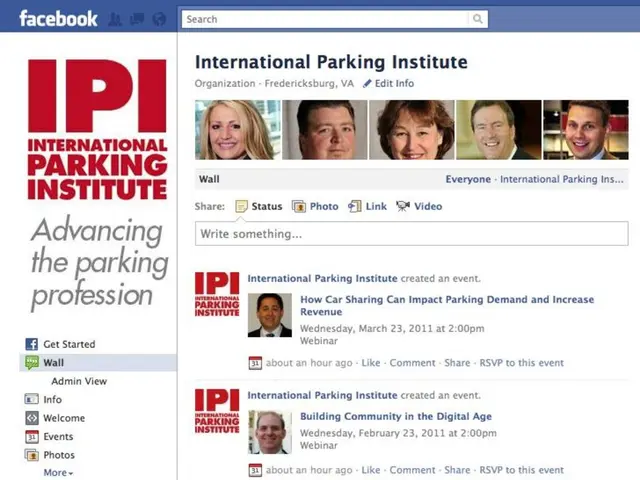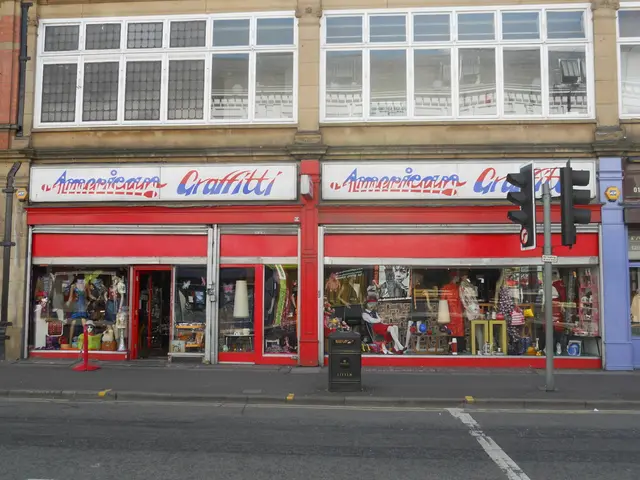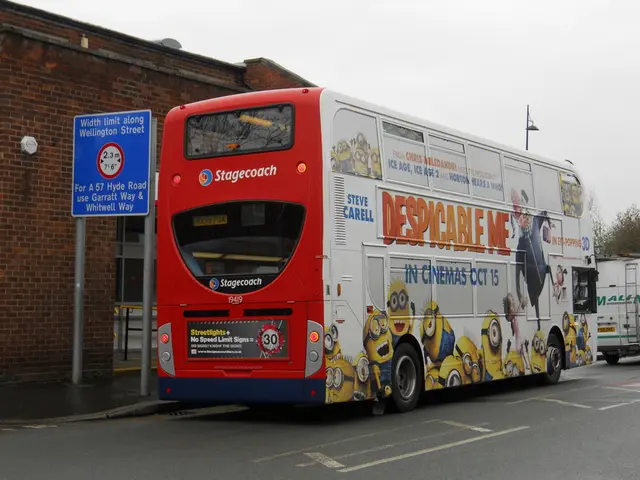Is the elimination of parking meters a reality?
Title: Discontinuation of Cash Parking Payments and Abolishment of Parking Meters in Bergisch Gladbach: A Closer Look
Bergisch Gladbach, a city in North Rhine-Westphalia, Germany, initially aimed to modernize its parking meters by eliminating cash slots and introducing an EC card function. However, following a disagreement in the responsible committee, the decision was made to abolish the parking meters altogether, effective from January 1, 2026. This shift will necessitate the use of a mobile app for smartphone users to pay for parking in public lots, with QR codes provided for this purpose. Cash payments, on the other hand, will be limited to the "Pickerl" system, which allows users to purchase voucher booklets at select city offices and display the tickets behind their windshields.
Markus Bollen, an expert Green party member, successfully reversed the city administration's plans, first in March when the city was contemplating the abolition of cash payments for parking tickets, and now with the removal of parking meters. The committee's decision was reached based on Bollen's proposal.
This change marks a significant technological advancement for Bergisch Gladbach, albeit unintentional. The debate it sparked raises questions about the objectives of effective local governance. We will delve into this matter and address the key questions.
For drivers, this decision means that all parking meters in the city will be dismantled from January 1, 2026. Those who wish to park in public lots will be required to pay via a mobile app. The city will attempt to establish further sales points for the "Pickerl" vouchers, although they have already deemed this task economically unfeasible. Cash and EC card payments will no longer be an option.
The decision was made on Tuesday evening with nine votes from the Greens, SPD, and FWG against six votes from the CDU and AfD, with the FDP abstaining. The committee possesses the decision-making authority on this matter, and no further decisions in the city council are planned.
Legally and technically, the city confirms that the project is feasible upon request. However, the project's implementation in this form is not guaranteed. More information regarding this will be provided at a later date.
The primary motivation behind this decision is cost reduction. The city is facing a financial crisis and cannot afford to maintain the parking meters for a small group of cash-paying citizens. The mobile parking system offers a simple, convenient, and cost-effective alternative for users, as demonstrated in numerous other cities.
However, the share of parking income generated via mobile app in Bergisch Gladbach is currently only 25%. The mobile parking system was introduced in the city nine years ago. For cash-paying citizens, the "Pickerl" system will serve as an alternative option in the future. The Greens emphasize that the elimination of parking meters is an important step towards reducing bureaucracy and simplifying administrative processes.
The SPD is generally silent on the matter, describing the Greens' proposal as a reasonable compromise. The FWG supports the transition to pure mobile parking, with paper tickets as a temporary solution. The CDU, however, considers the "Pickerl" solution insufficient and impractical. They insist on an appropriate option for cash payments, arguing that citizen-friendliness is the determining factor.
In the eyes of CDU council member David Bothe, eliminating cash payments on-site signals a lack of interest in citizen-friendly local politics. Since many app providers charge additional fees, using a mobile device to pay for parking makes it unnecessarily expensive and complicated. This decision may also diminish the appeal of city centers for external visitors.
The CDU seeks a future-oriented, barrier-free, citizen-friendly, and economically viable parking management solution. They propose that an interfactional working group be convened to reach a consensus on this matter. However, their proposal was rejected by the Greens, SPD, and FWG.
Despite the tumultuous debate, the two deputy mayors, Thore Eggert (FDP) and Ragnar Migenda (Greens), expressed concern over whether Bergisch Gladbach is capable of genuine reforms and savings. They question the city's reluctance to save money by implementing a mobile parking solution that is already prevalent in other countries.
Whether the parking machines will indeed be dismantled remains uncertain. The Greens strongly support this decision, stating that it is time to take risks and explore new possibilities. The SPD is carefully considering the issue, advocating for long transition periods and networks of sales points for the "Pickerl" vouchers to ensure digital inclusivity. The CDU is examining whether they can rescind the decision or delay it until after the city council elections on September 14, 2023.
[Source: https://www.gl-stadtreporter.de/news/stadt-politik/ gl-parken-mobile-zahlung-staedteintressert-03-06-22/]
[1] City of Bergisch Gladbach, Parking in Bergisch Gladbach, https://www.bergisch-gladbach.de/stadtverwaltung/verkehrs-und-parken/parken/
[2] Greens faction, Parking Management in Bergisch Gladbach, https://gruene.bergisch-gladbach.de/themen/parken
[3] Trademark Europe, Markenliste Bergisch Gladbach,https://www.trademark-europe.eu/de/ markenliste/ Bergisch-Gladbach/
- The decision to abolish parking meters in Bergisch Gladbach and transition to a mobile app-based parking payment system is a significant movement in technology for the city, but it has also sparked debates about the balance between technology, finance, politics, and general news.
- The disagreement over the parking payment system in Bergisch Gladbach has not only involved discussions on technology but also touched upon the city's financial situation, with the Greens emphasizing the cost reduction benefits, while the CDU has raised concerns about the feasibility and accessibility of the mobile app for cash-paying citizens.







